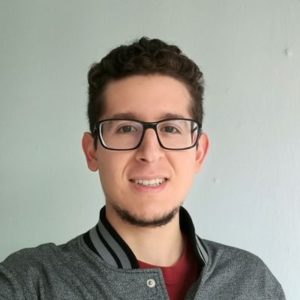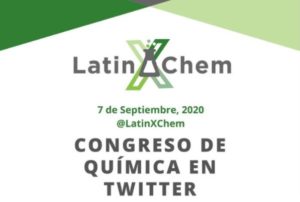Lockdown measures due to COVID-19 and bans on international travel have imposed many changes of plans for scientific conferences. However, for many researchers and students across Latin America, traveling to international conferences for oral and poster presentations was already challenging even before the COVID pandemic, given the limited funding available to principal investigators. Often times, when scientific research is underfunded, the decision to support a student’s conference participation occurs at the cost of other necessary laboratory resources (1). Moreover, while the use of English as lingua franca in the sciences helps knowledge dissemination, it has also become a barrier to science communication for non-native English speakers (2). Creating multilingual and accessible fora needs to be a key component of efforts towards greater inclusivity and diversity in scientific research.
For these reasons, Latinx student exposure to networking and learning opportunities at scientific conferences remains a challenge, further magnifying disparities in academic research among Latin American and other Western scientific communities. Taking example from the successful #RSCPoster Twitter conferences organized by the Royal Society of Chemistry, LatinXChem has emerged in the face of these challenges as the first event of its kind: a trilingual poster conference in the chemical sciences held entirely on Twitter, allowing for presentations in Spanish, Portuguese, and English. This collaborative effort is spearheaded by Latinx researchers in Mexico, Chile, Brazil, the US, Canada, Belgium, the UK, and Germany, who have ensured participation by stellar Latinx researchers as evaluators.
The involvement by distinguished Latinx evaluators is key, as they enrich the event not only with their academic expertise, but also by allowing for multilingual poster presentations and increasing Latinx representation in the chemical sciences, thus encouraging underrepresented students to pursue a scientific career. Latin American and Latinx students and trainees from around the world can participate in this event at no cost to them, sharing their research in any of 11 different categories within the chemical sciences.
We hope initiatives like LatinXChem keep growing, as they strive for greater inclusivity and diversity in chemical research, helping to break down economic and linguistic barriers to science communication in the Latinx community.
Register before August 25, 2020 at latinxchem.org. LatinXChem will be held on September 7, 2020 with the generous support of the Royal Society of Chemistry.
References:
(1) D. Solis-Ibarra. Chem. Mater. 2020, 32, 3, 913–914.
(2) M.C. Márquez and A.M. Porras. Front. Commun. 2020, 5, 31.
About the Web Writer:
 Gerardo Cedillo-Servin received his BSE from the University of Pennsylvania and is currently a MSc student in materials science and engineering at the National Autonomous University of Mexico, under the supervision of Dr. Ricardo Vera-Graziano. He is working on functional polymers for protein release and dynamic cell-material interactions. In addition to biomaterials research, he seeks to contribute to science communication and advocacy. You can find him on Twitter @gecedillo.
Gerardo Cedillo-Servin received his BSE from the University of Pennsylvania and is currently a MSc student in materials science and engineering at the National Autonomous University of Mexico, under the supervision of Dr. Ricardo Vera-Graziano. He is working on functional polymers for protein release and dynamic cell-material interactions. In addition to biomaterials research, he seeks to contribute to science communication and advocacy. You can find him on Twitter @gecedillo.
 Submit to RSC Advances today! Check out our author guidelines for information on our article types or find out more about the advantages of publishing in a Royal Society of Chemistry journal.
Submit to RSC Advances today! Check out our author guidelines for information on our article types or find out more about the advantages of publishing in a Royal Society of Chemistry journal.
Keep up to date with our latest HOT articles, Reviews, Collections & more by following us on Twitter. You can also keep informed by signing up to our E-Alerts.











